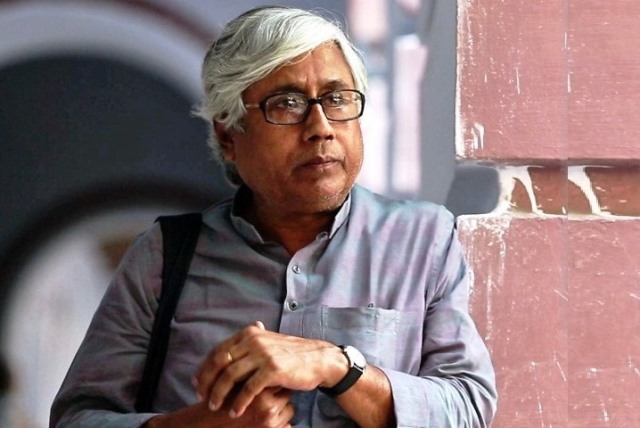Vidyarthy Chatterjee, a writer and film critic from Bihar, says Lalu Yadav’s unflinching commitment to secular politics is what frightens the BJP. His views:
The Centre’s action of slapping fresh cases of corruption on former Union minister Lalu Yadav and granting the CBI permission to prosecute him smack of a petty political vendetta. I do not endorse the financial irregularities committed by Lalu Yadav while in power. But for those wrongdoings, he has already spent many years in jail. He is now keeping poor health and is reduced to a pale shadow of his once vibrant politics. Why the Central agencies are still hounding him beats common sense!
Probably, it is the BJP’s plan to break the opposition leaders, ahead of 2024 Lok Sabha elections. In earlier times, people would have taken to the streets in support of their leader. There is little support from other Opposition leaders too.
Clearly, the people in power have been able to fracture opposition unity. Why else Ms Mamata Banerjee, the chief minister of neighbouring West Bengal, is quiet about Centre’s actions against the RJD? Similarly, there is no word of protest from Biju Janata Dal supremo Naveen Patnaik or any other leader of stature in the Opposition.
I have been brought up in Bihar and have witnessed the state politics evolve closely. It has also seen much communal conflicts. Successive chief ministers, from Satyanarayan Sinha to Anugrah Narayan Sinha never cared about communal divisions and violence. The anti-Muslim riots that were fomented in different parts of Bihar in 1964 had the active blessings of Krishna Ballabh Sahay. Then in 1973, something unusual happened. Abdul Ghafur became the chief minister and communal tension ebbed.
ALSO READ: ‘Such Brazen Misuse of ED-CBI Is Unprecedented’
However, it was Lalu Yadav who took a strong stand against any form of communalism in the state. In the peak of communal frenzy during BJP Rath Yatra, it was Lalu which had stopped the yatra and put LK Advani in custody, even when other leaders, including Bengal chief minister Jyoti Basu, shied away of taking any action against the saffron surge.
Lalu’s role in the politics of Bihar must be seen in this chronological context. His administration during the dark days of Advani’s Rath yatra shines in glory. Sitting in Jamshedpur we got the stories from people coming from Patna that the socialist leader actually sat in the police control room at that time and threatened those officials who showed a communal tinge in favour of the BJP brand of politics.
He ordered that Advani should not be able to enter Bihar, let alone cross. He threatened them that if they let him cross, the mujhse bura koi nahin hoga. We used to hear this oral history in the nineties. So therein lies the importance of Lalu Prasad Yadav as a bastion of secularism.
I also feel that his anti-communalism politics has more to do with what he has learnt from Ram Manohar Lohia than Jaiprakash Narayan. In fact, this political legacy of anti-communalism traces back to Subhash Chandra Bose and Mahatma Gandhi.
(The narrator has written the awarded book ‘Calcutta Films’ and has been on the jury of many film festivals)
As told to Abhishek Srivastava
